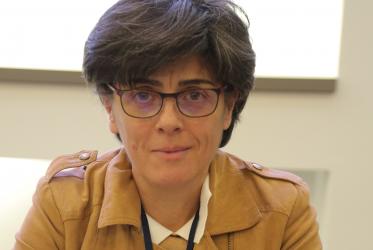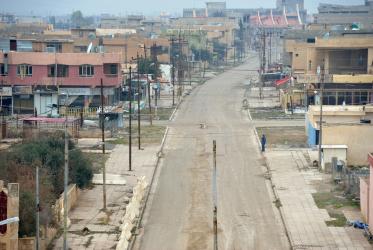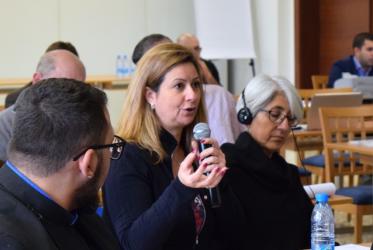Displaying 1 - 13 of 13
21 July 2021
Hope prevails in times of crisis in Lebanon
14 September 2020
New student body at Bossey Ecumenical Institute “a source of joy”
14 September 2020
Dr Saïd Ailabouni: God is on the side of rejected, oppressed, occupied
12 September 2019
Fr Alexi - a peacemaker in Syria
21 December 2018
WCC regrets USA withdrawal from UN relief for Palestinian refugees
03 September 2018
In Lebanon, refugees face hardship - but find hope
16 March 2017
Churches’ diaconal action in the Middle East analyzed
01 December 2016
“European solidarity must be strengthened”
29 October 2015
Local and global work saves lives
22 October 2015







